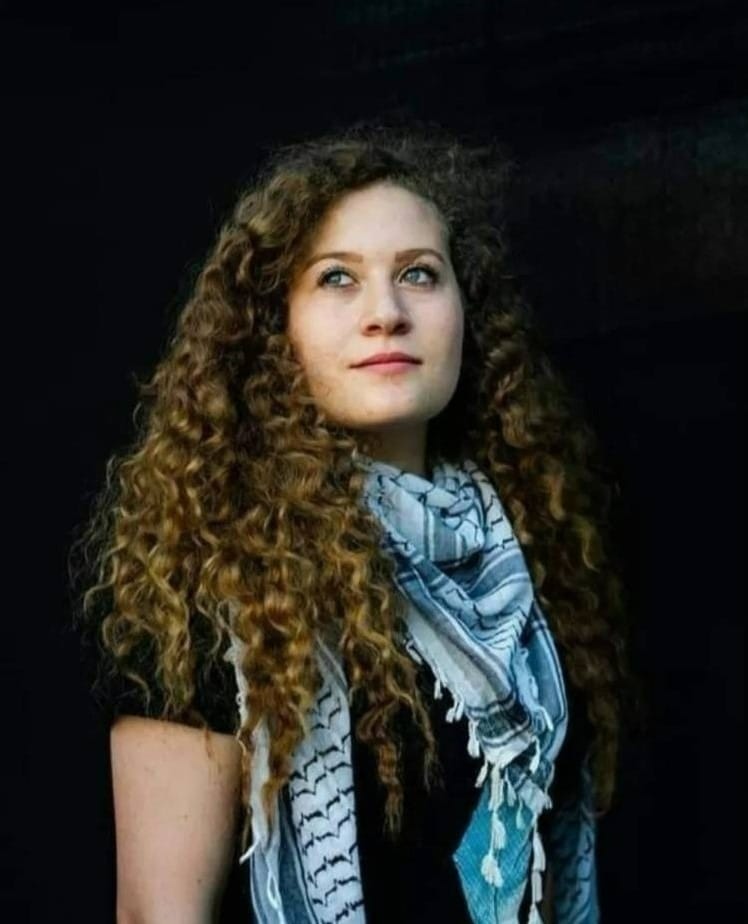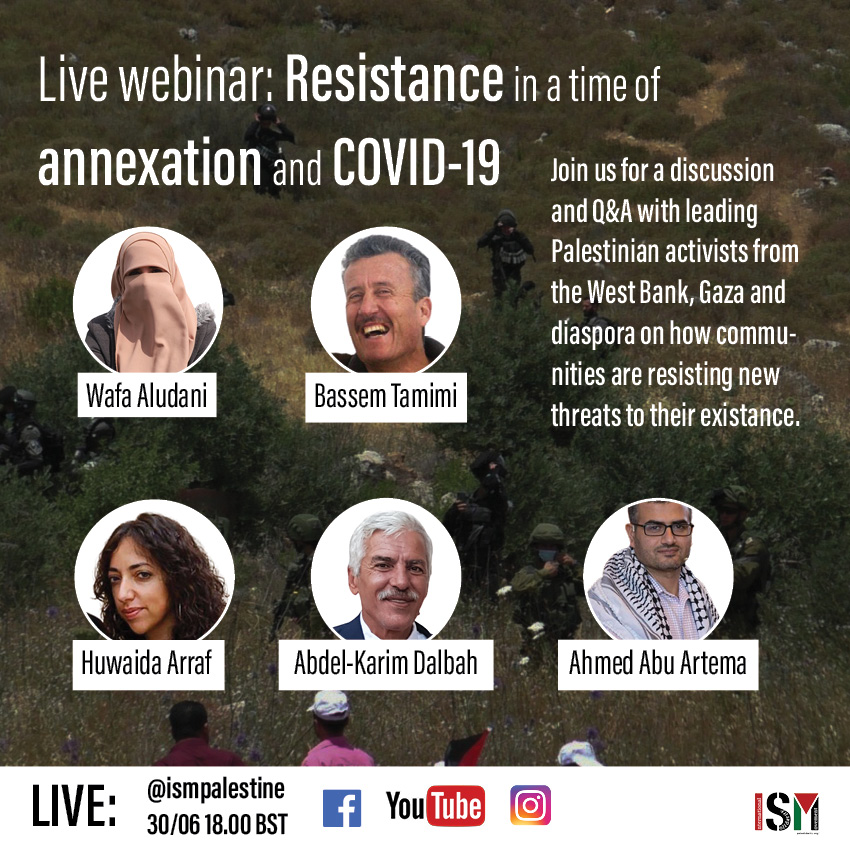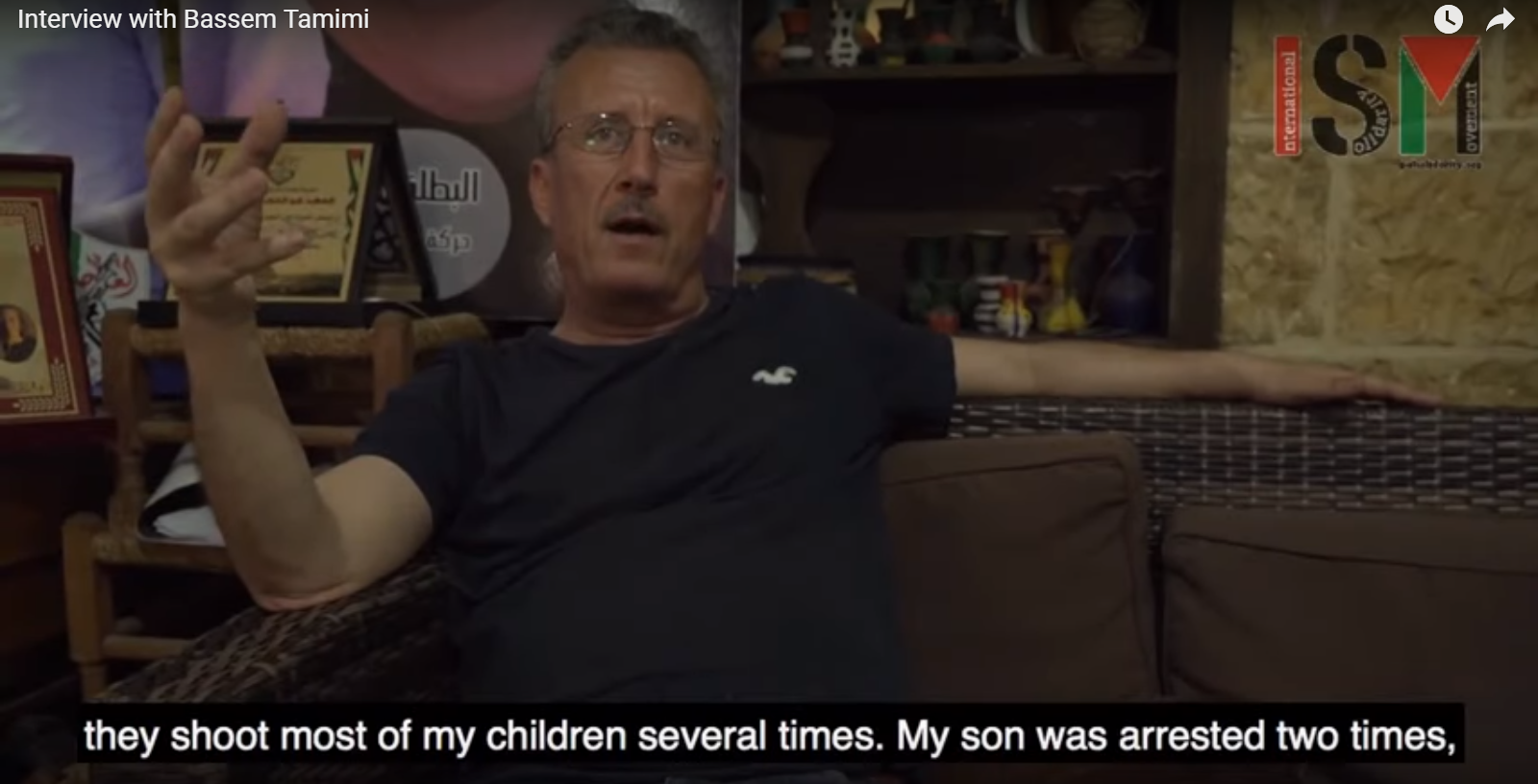Tag: Bassem Tamimi
-

Israeli occupation forces arrest Ahed Tamimi
6 November 2023 | International Solidarity Movement | International Women’s Peace Service Prominent Palestinian activist, Ahed Tamimi, was arrested in her home in the village of Nabi Saleh near Ramallah, in the early hours of today, November 6. Following the 22-year-old’s arrest, right-wing Israeli media allied with occupation forces and Israeli far-right politicians issued violent…
-

Resistance in a time of annexation and Covid-19 – an ISM webinar
ISM will be hosting a webinar on June 30th, Tuesday 20:00 Ramallah time, on annexation, COVID-19, resistance and international solidarity with the Palestinian struggle for equality and justice.
-

‘Why Ahed slapped the soldier’: an interview with Bassem Tamimi
12th June 2018 | Mondoweiss | Nabi Saleh, occupied Palestine This interview with Bassem Tamimi was recorded on May 4, 2018 in the occupied village of Nabi Saleh, by International Solidarity Movement activists. His daughter Ahed Tamimi, 17, is serving an eight-month prison sentence for slapping an Israeli soldier on the family’s property on December 15…
